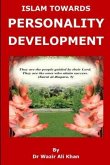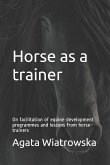The book covers some prominent people's quotations about education, their origin and definition, and twenty essays to support students taking certificates and degrees in education. Quote; "Education is the most powerful weapon you can use to change the world." Nelson Mandela. "Live as if you were to die tomorrow. Learn as if you were to live forever." ― Mahatma Gandhi "You can never be overdressed or overeducated." Oscar Wilde "Education is our passport to the future, for tomorrow belongs to the people who prepare for it today." Malcolm X "Aim for success, not perfection. Never give up your right to be wrong because then you will lose the ability to learn new things and move forward with your life. Remember that fear always lurks behind perfectionism." David M. Burns "You will either step forward into growth, or you will step backwards into safety." Abraham Maslow Origin of Education The word "Education" originated from the Latin term "Educere," which means "to lead forth" or "to come out." Education '"originates in the medieval university system. Training is usually done through specialised courses and textbooks. Definition Education can be defined in different ways. Example 1. Education can be thought of as transmitting a society's values and accumulated knowledge. 2. The process of receiving or giving systematic instruction, especially at a school or university: 3. Education is a discipline concerned with teaching and learning methods in schools or school-like environments as opposed to various nonformal and informal means of socialisation (e.g., rural development projects and education through parent-child relationships). 4. Education is the transmission of knowledge, skills, and character traits and manifests in various forms. Formal education follows a structured institutional framework, like public schools following a curriculum. Non-formal education also follows a structured approach but occurs outside the formal schooling system, while informal education entails unstructured learning through daily experiences. Formal and non-formal education are categorised into early childhood, primary, secondary, and tertiary education. Other classifications focus on teaching methods, such as teacher-centred and student-centred education, and subjects like science, language, and physical education. Additionally, "education" can denote the mental states and qualities of educated individuals and the academic field studying educational phenomena. The main type of education is formal education, which is structured and systematic learning in schools and other institutions, following a curriculum and leading to a certification. Informal education: the spontaneous and incidental learning that occurs through everyday life experiences, such as family, work, hobbies, and media. Non-formal education: organised and intentional learning outside formal education, such as adult education, community education, vocational training, and lifelong learning. Descriptive Educational Research: Collecting data about the present situation or status quo. Correlational Educational Research: Investigating statistical relationships between two variables. Experimental Educational Research: Conducting experiments to study cause-and-effect relationships.. Quantitative Research: Using numerical data for analysis.. Qualitative Research: Focusing on understanding human behaviour and experiences. EDUCATION SYSTEM IN THE UK Across the UK, there are five stages of education: early years, primary, secondary, Further Education (FE) and Higher Education (HE). Education is compulsory for all children between the ages of 5 (4 in Northern Ireland) and 16. FE is not mandatory and covers non-advanced education, which can be taken at further (including tertiary) education colleges and HE institutions (HEIs). The fifth stage, HE, is studying beyond GCE A levels
Hinweis: Dieser Artikel kann nur an eine deutsche Lieferadresse ausgeliefert werden.
Hinweis: Dieser Artikel kann nur an eine deutsche Lieferadresse ausgeliefert werden.








